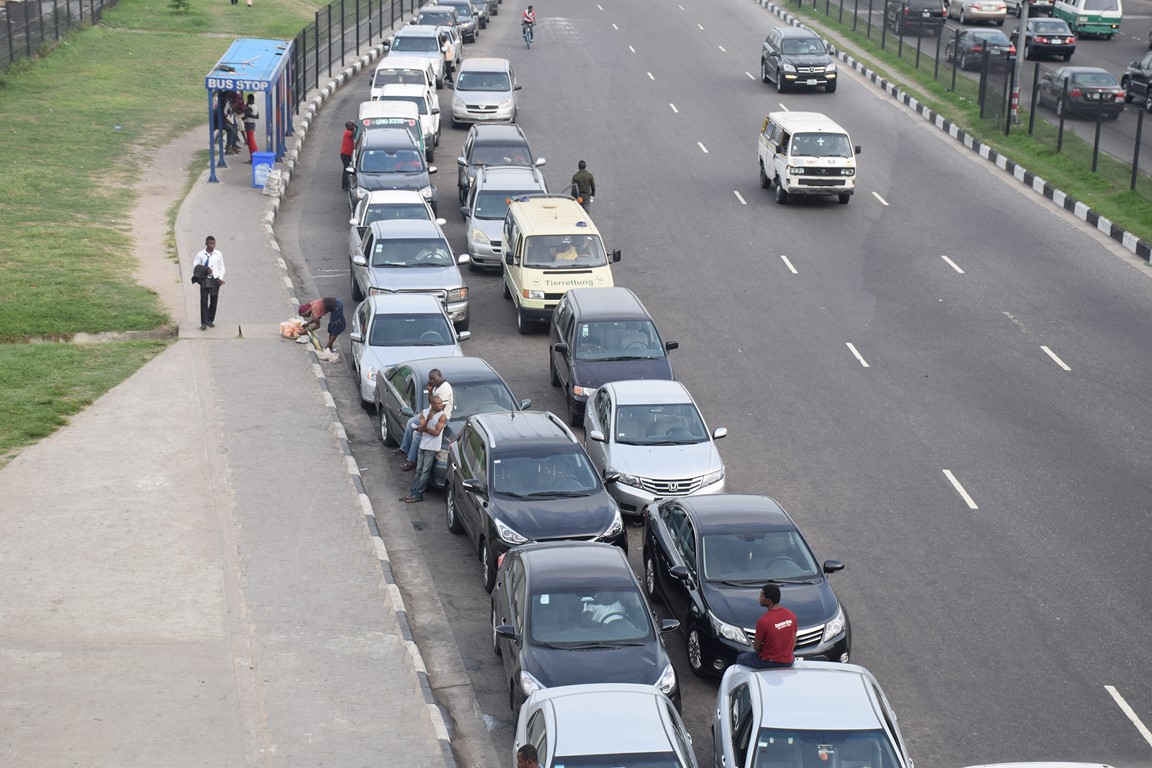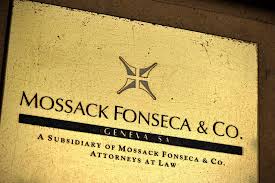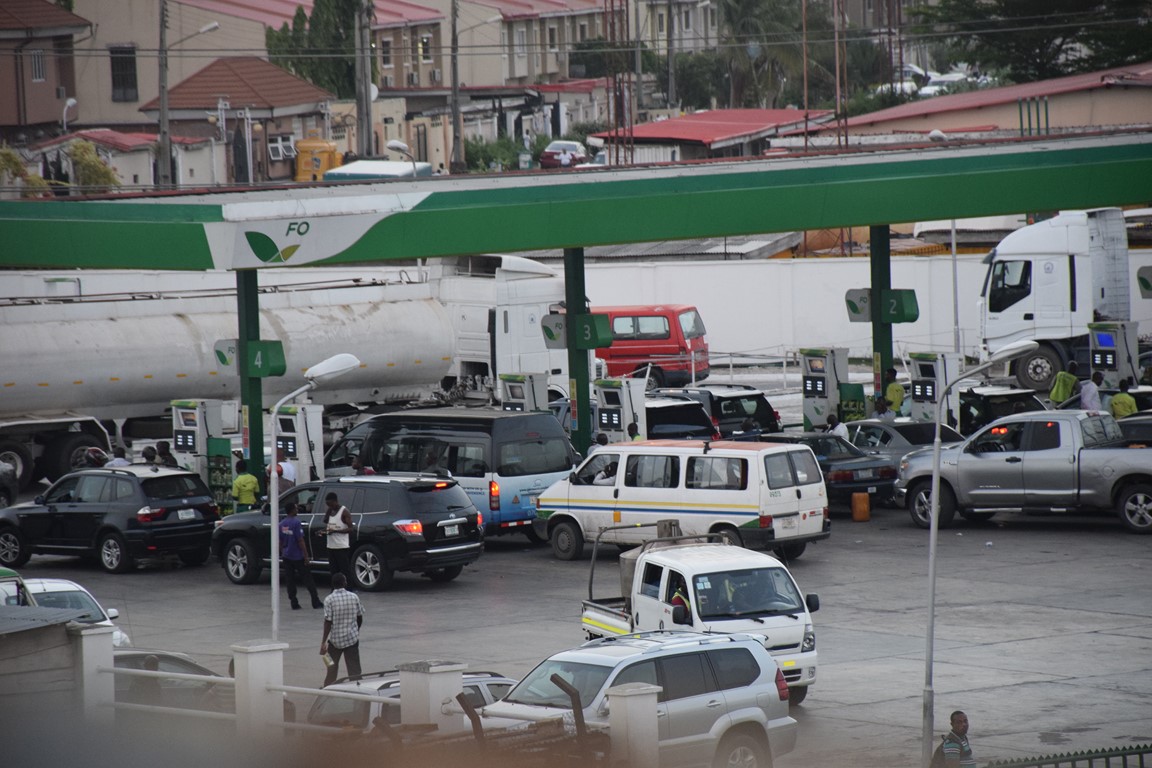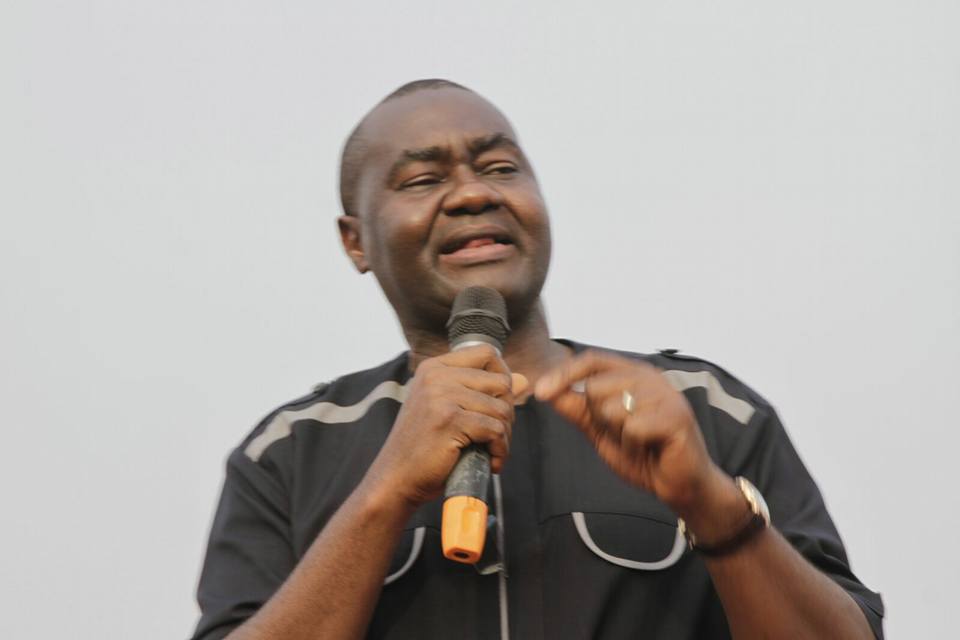We were returning from church when it all started. There was a long line of vehicles stretching as far as the eye could see in front of a petrol station. It was not a line, actually; it was a vehicular jungle.
Apart from the cars, there were hordes of people carrying mostly yellow and black jerry-cans and others carrying tanks of various sizes dismantled from their generators and God-knows-what. Then, there were the motorcycles, and the tricyles popularly called Keke Marwa, chugging head-to-tail like randy he-goats.
We were trapped and it didn’t take long before we started talking.
“This is my problem with Lagos,” I began. “There appears to be a peculiar demon which compounds every problem, no matter how small. Why can’t people just try to do the right thing? How on earth are we going to get out of this place now?”
Advertisement
“See me see wahala o,” my wife sympathised.
My children, led by my son, took a stunning tack: “Dad, you should not be complaining! You should not be complaining at all!! Ha! ha!! ha!!! ha!!!!”
“What do you mean by that?,” I demanded, as the car continued running hopelessly on a spot.
Advertisement
“Have you forgotten all that you wrote? Have you forgotten how you criticised the last government week-in-week-out for nearly five years?”
“I don’t understand. What has my criticism of Jonathan got to do with this traffic jam? What has that got to do with people not staying in a single file and just being orderly to get things done?”
My son, who had obviously made himself the spokesperson, raised his voice above those of his sisters who were no less vehement in trying to be heard. He insisted that the traffic mess I was upset about was evidence that nothing had changed. If, at all, things have become worse.
“Dad, if this fuel scarcity was happening under Jonathan, you will give him the length of your tongue. You will call him incompetent and clueless. You will throw the dictionary at him. Now, instead of attacking Buhari you’re blaming motorists, who would probably not be here this Sunday morning, if there was enough supply of petrol.”
Advertisement
It was not what he said that struck me. It was how he and his sisters broke into laughter that rocked the car. It was as if they all had it bottled up and were looking for a chance to unleash themselves at me.
“Ah! Now, I get it,” I started, knowing that this might have been brewing for a long time and that I might not get another chance soon to defend myself.
I told them that my criticisms of former President Goodluck Jonathan were not personal. Like most Nigerians, I was one of his staunch supporters in the dark, early days when some people around the ailing President Umaru Yar’Adua treated Jonathan like an errand boy. Jonathan was not an accident; he was, at the time, the country’s best hope to retrieve itself from the brink. The politicians may pretend that a so-called Doctrine of Necessity was their gift to save Nigeria, the law and doctrine of commonsense provided no other orderly alternative.
“But what did we get in five years?,” I asked. “Jonathan made himself hostage to special interests – especially politicians and a few businessmen – who he thought put him there. Then he made himself hostage to a few within his party. Then again, he made himself hostage to Tompolo and a few vocal militants. And finally, he made himself hostage to four women who ran the country as they pleased.”
Advertisement
“OK, Dad,” my son jumped in, “but you have not yet addressed the point. Why does the fuel scarcity still persist after Jonathan? Why are we still in this mess?”
“We’re in this mess because governments in the last 16 years have run the refineries aground. In two years alone Diezani spent $1.6billion on so-called turnaround maintenance and yet things have only got worse. For the past five years, for example, when oil sold at $100 per barrel, they allocated 450,000 barrels a day for refining to meet local demand, but they ended up stealing most of it. What they stole every year for five years when oil sold at $100 pb, was approximately $16.2billion per year.
Advertisement
“Over the years, there has been an officially sponsored group that has fleeced the country by claiming trillions of naira in subsidy for petrol which they never even imported in the first place. These fellows most of whom were known to Jonathan – and even worked with him, if not for him – are known to have stolen over N2trillion.
“That theft, to which Jonathan turned a blind eye, could have built at least one brand new refinery with 650,000 barrels per day production capacity (the type Dangote is now building) and modernised the archaic and grossly inadequate distribution system.
Advertisement
“It’s corruption, boy; organised state-sponsored corruption! If we started building just one refinery when you were five – which was when PDP came to power – we would not be in this mess today!”
While we were at it, a special corps marshal who had been going up and down, cajoling, hollering and squeezing through human and vehicular traffic, finally managed to bring some order to the road. The two-lane road had been reduced to one, but traffic was easing, one car at a time.
Advertisement
“I knew you would say that, Dad. I knew you will not end this without bringing up corruption. But I’d rather have corruption and get things moving than get stuck at one point, blaming the past. For how long?”
“For as long at it takes to get the foundation right,” I replied.
Just then, the special corps beckoned and we squeezed through.
Ishiekwene is the managing director/editor-in-chief of The Interview and board member of the Paris-based Global Editors Network






